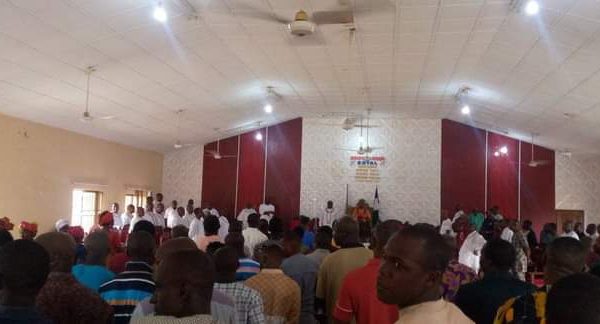The traditional ruler of Olomoro Kingdom in Delta State, Joseph Isaiah Isike Edekere 1, has been dismissed by the Isoko South Local Government Council.
This dramatic development was confirmed in a letter signed by the council chairman, Friday Ovoke Warri, on December 10, 2024.
The letter, titled “Withdrawal of Representation as the Odio-logbo of Olomoro Kingdom,” accused the monarch of misconduct, disrespect for authority, and inciting crisis in his community.
The council chairman made it clear that Joseph Isike is no longer recognized as the Odio-logbo of Olomoro Kingdom.
The letter instructed him to immediately stop presenting himself as the traditional ruler or face “dire consequences.”
According to the letter, the decision was taken after thorough consideration of the monarch’s alleged actions.
The letter stated, “This withdrawal is necessitated by your lack of respect for government, instituting confusion and crisis in Olomoro community, and high-handedness in leadership.”
It also warned him against attending any traditional council meetings at both the local and state levels.
This marks a significant shift in the leadership of Olomoro Kingdom, a community that has been engulfed in a series of crises in recent months.
The community has reportedly witnessed growing tensions attributed to power struggles involving the monarch and other leaders.
A key source of the conflict has been alleged attempts by some leaders, including the sacked monarch, to unseat the newly elected President-General of the community, Lucky Ewhe Ejoor.
Lucky Ewhe Ejoor is said to have garnered massive support from various factions of the community, including leaders, youths, and women.
Many in the community believe this struggle for power has only deepened divisions and disrupted peace.
Residents of Olomoro have expressed mixed reactions to the sacking of the Odio-logbo.
While some hailed the decision as necessary to restore order, others viewed it as an overreach by the local council.
A youth leader in the community, who chose to remain anonymous, said, “This decision is long overdue. The Odio-logbo was not leading us well. We need someone who can unite the kingdom.”
Another resident, however, questioned the council’s authority in such matters.
“Does the chairman have the power to dethrone a traditional ruler? This is a dangerous precedent,” the resident remarked.
The sacking comes at a time when Delta State is grappling with increasing tensions in its traditional institutions.
The Olomoro community, like many others in the region, has a rich cultural heritage, but leadership disputes have often cast a shadow over its progress.
Observers have called for dialogue and reconciliation among all parties to prevent further escalation of the crisis.
A political analyst based in Delta State commented on the situation, saying, “This is a delicate matter. Traditional rulers hold significant cultural and symbolic authority, but they are not above accountability.”
He added, “If the allegations against the Odio-logbo are true, then the council’s action is justified. However, due process must be followed to avoid unnecessary tension.”
As the dust settles on this development, questions remain about the future leadership of Olomoro Kingdom.
Will the community rally behind a new ruler, or will the crisis deepen?
For now, the focus is on maintaining peace and resolving the underlying issues that led to this dramatic fallout.
The council’s stern warning to the former monarch serves as a reminder of the fragile balance between traditional leadership and modern governance.
Delta State’s leadership and traditional institutions must work together to ensure stability and unity in Olomoro Kingdom.

